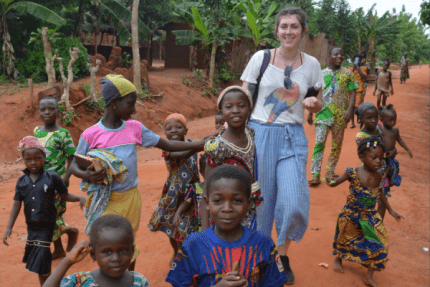
After spending a week in Benin on a LIFE Team Vision Trip with Global Aid Network (GAiN), Rachel Botma had visited enough villages to see the contrast between communities with access to clean water and those without.
“Just to see the enormous impact that having clean water has on a community was really something. You could really tell the difference between the communities with and without. Not just wells, but churches, too. There seemed to be so much more life, joy and vigour at the minimum.”
It was back in March 2019 that Rachel, along with her mother and four other team members, joined GAiN to Benin to see the work that is being done on the field through the Water for Life Initiative program.
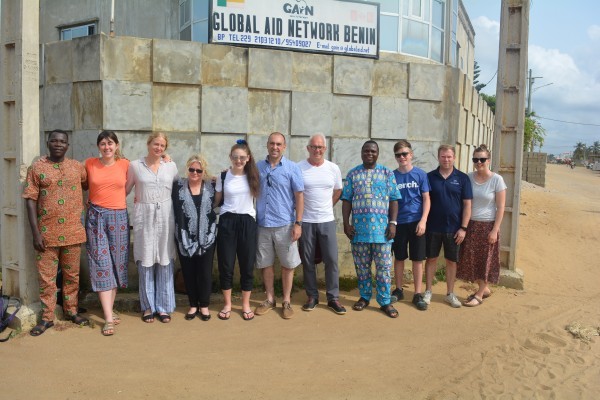
“I have been wanting to get involved in some kind of humanitarian project or volunteer for an NGO for quite a while but never found the right opportunity for me,” Rachel, explained. “Clean water and access to clean water is something that is near and dear to me; something I have been quite passionate about for some time. When I heard about the work that GAiN was doing, [providing] wells for underserved communities and villages, it was something that I knew I wanted to get involved with.”
With this being her first ever trip to Africa, and first trip to a developing country, Rachel signed up with no expectations. She quickly found herself shocked, but says it was a necessary shock.
“We pretty much jumped right into seeing the villages, which I think was really great because it jump-started a lot of powerful conversations and a lot of brainstorming. It was really wonderful for me to pick the brains and hear others pick the brains of some movers and shakers in the humanitarian space. It was quite inspirational for me.”
She recalled the first village they visited, Guede Codji, which was the first village to receive a deep-capped water well from GAiN in 2005.

The team learned about how a lack of clean water exacerbates gender inequality in places like Benin, where women and girls have to give up educational and career opportunities because they are tasked with fetching water for the family. In places where a water source is a few kilometres away, women are often put in danger situations must risk their safety to get water that is contaminated.
“Often these women get sexually assaulted on their journeys for water. That to me was such a horrible reality because they don’t have a choice and they have to put themselves in jeopardy every single day.”
An encounter with a local teenage girl and her father really stuck with her and highlighted the gender inequality issue even more.
“Another conversation that really stood out to me as a huge cultural issue is just how much the girls are expected to work, and how the men just don’t see a problem with it. The most extreme situation we saw was with this 16 year-old girl, Clarice, and her father. When I first saw Clarice, I said to my mother, ‘Wow, that young girl must be nine months pregnant with twins.’ Turns out, she has sclerosis of the liver.”
There was another team member on the trip, named Abel, who happened to be a doctor and was able to talk to Clarice’s father about her medical history. It was her second time developing the condition. Abel advised Clarice to take it easy, telling her father not to let her carry anything heavy and to send her to a doctor. While Clarice and her father seemed to understand and agree, Rachel was very disappointed when she saw that not more than 15 minutes later, Clarice was carrying large pails of water over her head as her father watched on his bicycle.
“The point of this story is to show just what a woman or girl must endure without say, the expectations of them, their lack of rights, and also dignity,” Rachel explained.
Not only did Rachel witness gender inequality in the field, she also saw what the reality was like for villages without a clean water source versus villages with wells.
“One thing that really struck home for me was seeing the water source of one of the villages, which they called a river but was nothing more than a stagnant swamp — smell included. During our time there, we got to see a well constructed and become operational for that village. [It’s] crazy to think [that] what we take for granted, something as simple as water, can have such a huge impact.”
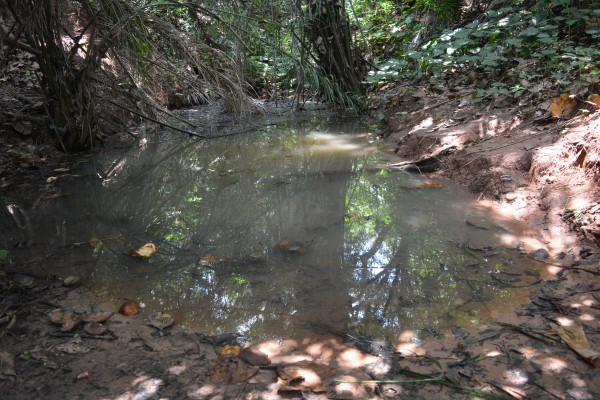
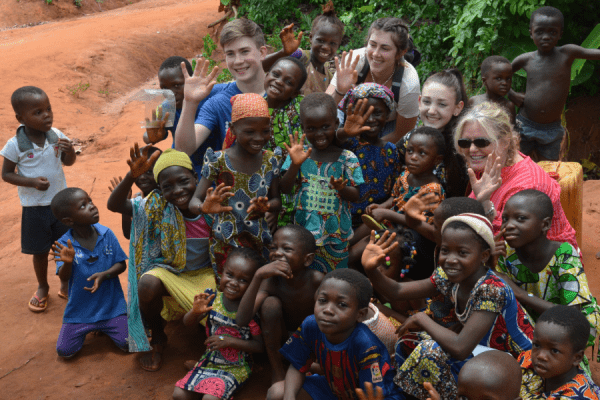
She observed that the impact of clean water was truly evident in the joy of the children.
“I noticed in the communities that had [deep-capped water] wells, the children were acting like children. They were silly and playful like children should be. In the villages without wells, and especially in the villages with a lot of voodoo (which you could really feel a dark, heavy spirit), the children seemed so lifeless. No emotion; no reaction to anything. I mean, comparing the two is almost a day and night difference.”
Although it was only a little over a week long, the trip provided Rachel with multiple learning opportunities, whether it was through speaking with villagers or GAiN staff from Canada or Benin.
“It was really encouraging to meet the GAiN staff. I mean, you could feel the blessing in the GAiN house, radiating off of the staff.”
The first full day consisted of a staff meeting, giving the team an opportunity to meet most of the staff, hear their testimonies and learn about the work that they do. They had the opportunity to dance and sing together and hear a message from Patrice Lavagnon, GAiN Benin country manager, and Ray Sawatsky, GAiN’s CEO and Executive Director.
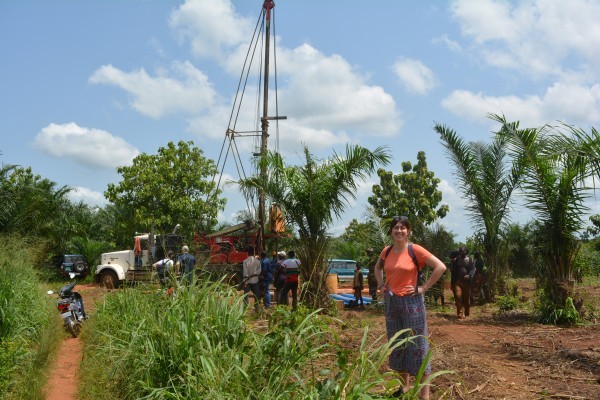

“We were able to see the community that has been built around GAiN. It was a wonderful experience. One that I had never been a part of before; non-traditional worship, and feeling its impact. It was a blessing for me to be a part of that and I am very thankful.”
And the vision trip was just the start of Rachel’s involvement with GAiN, as she hopes to stay involved in the future.
“I am interested in hearing about more opportunities for me to continue involvement whether it could be to go on another vision trip, volunteering or even employment. It is a smart organization, and one with the values that I can stand behind.”
ARE YOU INTERESTED IN GOING ON A LIFE TEAM VISION TRIP? CHECK OUT OUR UPCOMING LIFE TEAM VISION TRIP DATES.
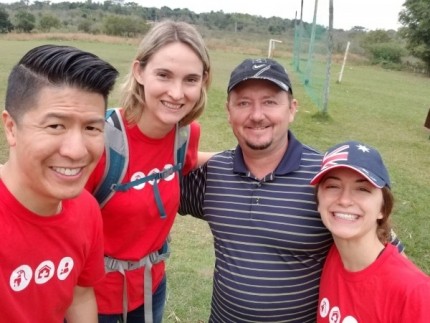
Alex P., Paraguay LIFE Team Participant, shares his experience below.
I was expecting to simply do some business workshops and that was it – but God had greater plans.
I felt called to do missions when I was a teenager but never acted upon it. Life got in the way – going to school, finding a job, getting married, buying a house, having kids, etc.
One Sunday, the pastor of my church had a sermon about “rekindling lost dreams” and, immediately, I thought about missions.
When I came across Global Aid Network (GAiN)’s booth at Missions Fest in January 2018, they really got my attention. I searched through the LIFE Team trips and saw that the Paraguay trip needed volunteers with a business background to teach on financial literacy, which is sort of what I already do in my profession! This was a sign that God was calling me there.
So, I went on the trip to Paraguay to serve with Diaconia (GAiN’s in-country partner that provides micro-loans to help women get out of the cycle of poverty). There, I did workshops on financial literacy, how to start a business and managing personal finances.
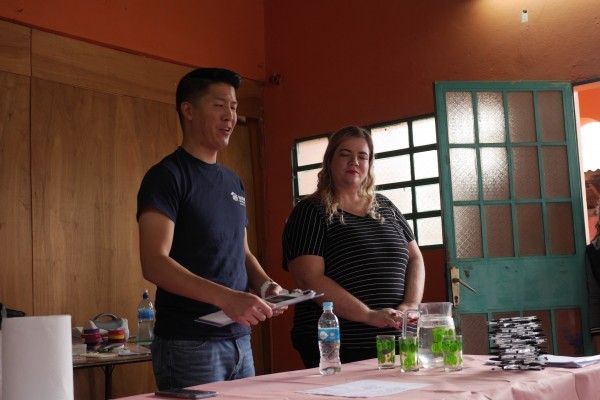
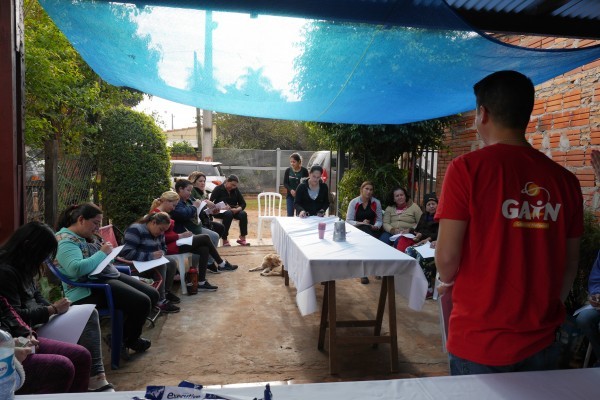
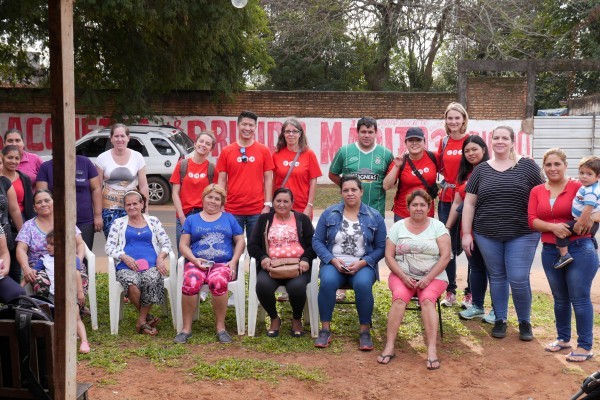
We also visited several Diaconia Trust Groups – groups of about 15 people, who receive a group loan and help hold each other accountable to pay back their loans. Then we visited some of the local businesses of Diaconia clients. We got to see how the micro-loan program has impacted their lives.
Near the end of our week, we visited Jesus Responde (Global Aid Network’s other partner in Paraguay) and went to a wholistic community centre that partnered with a church to do AWANA Children’s Ministry and spent the day with the children and staff there.
In the middle of the week, I also had an opportunity to lead a devotional for the Diaconia staff. I tried to keep an open mind to whatever God had in store for me. I was busy preparing the business presentations leading up to the trip, so I didn’t have too much time to meditate on it beforehand. I was expecting to simply do some business workshops and that was it – but God had greater plans.
The devotional that I shared with the Diaconia staff was something I didn’t prepare beforehand, perhaps only 30 minutes the night before. After several conversations with the local staff at Diaconia, it became apparent to me that because of the history with the Triple Alliance War and how it has affected the culture in Paraguay, the family unit is broken.
With the current culture in Paraguay right now, it generally accepted as normal for men to not be involved in family life, even being unfaithful to their wives. Some men are not present, leaving the burden to raise families to the women.
I felt that God called me to direct my devotional toward the men, talking about the importance of prioritizing family as a husband and father.
The staff at Diaconia really thanked me for speaking on the topic (even the women too). One lady said to me that no one has ever spoken on that topic like that before, and the men really needed to hear it.
There was great fruit from my devotional, as it even sparked more conversation with our missions team throughout the week! My initial intention was just to direct the devotion towards the men, but God multiplied the fruit by also blessing the women!
I feel that I showed God’s love by serving the people through financial literacy workshops, leading a devotional, listening to people’s stories and speaking into their lives, and spending time with the kids at the community centre.
What impacted me the most was listening to people’s stories about how God has changed their lives through Diaconia, Jesus Responde and the local church. As long as we get out of our own way and say yes to God, He will open up doors and bless you abundantly.
I hope that sharing my experience with my family and friends will inspire them to also serve locally or abroad. I am most definitely thinking of going back! I’ve already made plans to return next year, and in the meantime, starting to learn Spanish.
If you want to go on a mission trip, do it! There is never going to be a perfect time to go. Life will get in the way and you can make up hundreds of excuses not to do it, but if you feel called don’t ignore it. Say yes to Him and He will take care of the rest. You will be glad you did. You may even think “why didn’t I do this sooner?” You will be blessed greater than you can imagine!
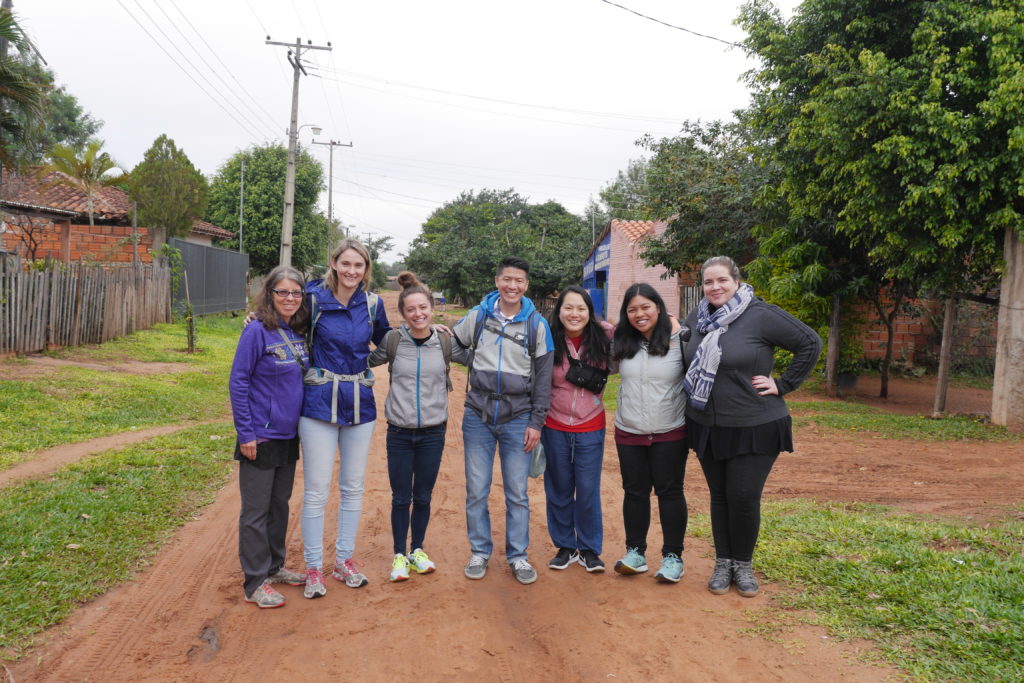
JOIN A LIFE TEAM TRIP TO PARAGUAY THIS YEAR!
I’M INTERESTED
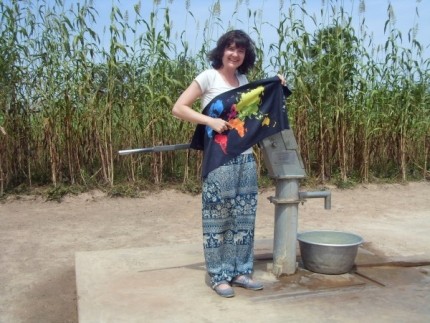
Q&A With Salome, WFLI Benin Vision Trip Participant
Salome from Germany recently participated in Global Aid Network (GAiN) Canada’s 2018 Benin Vision trip.
Q: How did you first hear about GAiN?
A: I heard about GAiN some years ago when my brother and his wife were involved in helping with one of GAiN Germany’s projects. They recommended that I go on one of GAiN’s mission trips and I ended up going on my first trip to Haiti with GAiN Germany in 2015.
Q: How did you end up hearing about the trip and what made you want to go?
A: In 2016, I sponsored a well for [Benin] through GAiN’s Water for Life Initiative. In 2017, I was informed that it had been assigned to a village in Benin. I was quite curious to see it with my own eyes – especially if there is really a plaque with my name on it. Unfortunately, GAiN Germany did not offer a trip to Benin, however, they let me know that GAiN Canada offers a vision trip. Thus, I contacted the Canadian office and was lucky to meet Lily, GAiN Canada’s LIFE Teams Manager. The trip was scheduled for the southern part of Benin (where the GAiN office and accommodation are located), however, my well was 600 km north. Lily and the GAiN Benin staff helped organize an individual three day trip for me to see my well in the north. Still, today, I appreciate their efforts.
Q: What did you do and see while on the trip?
A: We visited several small villages, every day seeing a different aspect of the Water for Life Initiative:
- Drilling of the well
- Flushing of the well (when an air compressor pushes the water out of the top of the well to clean out dirt and debris from drilling, causing clean water to spray out of the well)
- Watching presentations from GAiN partners DRIME (Disciples Ready in Mobile Evangelism) and The JESUS Film Church Planting Strategy
- Attending Hygiene and Sanitation Trainings
- Celebrating in a newly planted church and experiencing African worship
- Taking part in the weekly staff and prayer meetings
- Visiting the village that I had sponsored a well for [it is called Dipokor Fontri] and talking to the residents of the village
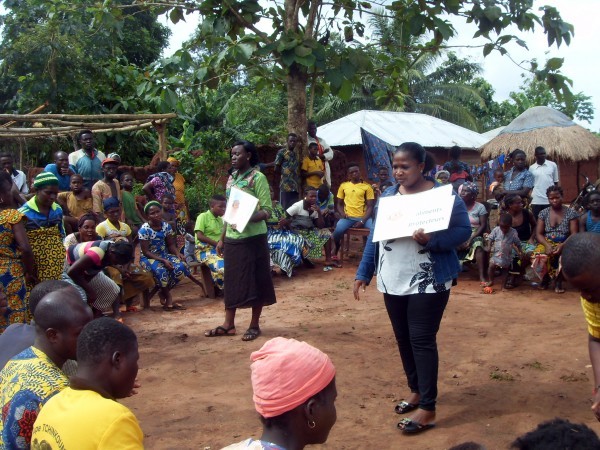
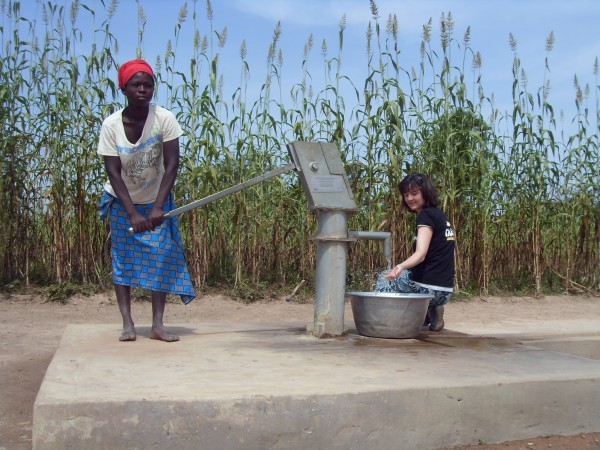
Q: How was the journey from the GAiN Benin office to the village of Dipokor Fontri?
A: The journey from the south (GAiN office) to the north (my well) and back was really exciting. It took me 11 hours one way and an additional hour for a repair stop because the car’s gas pump was malfunctioning. This was on the trip to the north and for a moment I thought I would never arrive at my destination. I sat in the shadow of the “open air garage” that we found along the way, and prayed while eight Africans cleaned the pump. Finally, it worked and we could continue on our trip.
Most of the distance was on a potholed asphalt road. Overtaking manoeuvres of heavy trucks and overloaded cars, as well as lane changes, caused me to close my eyes from time to time. On the other hand, I opened my eyes widely to catch all the sights of small villages, busy wives, simple markets on the roadside, churches, mosques and fields with interesting plants and much more. The closer we came to my village the more the road changed into a path and the last kilometer I had to walk through fields like a scout.
On this trip I was accompanied by a GAiN Benin staff member and a driver. Communication was in french. We had two overnight stays in a hotel, in the typical local style, in a quite big city three hours away from my village.
Q: What were some highlights of the trip?
A: Seeing how motivated, well-organized and dedicated the local staff is to demonstrating the love of God. Seeing the partnership of the JESUS Film Church Planting Strategy and seeing a screening of the JESUS film in the village. Visiting Dipokor Fontri. I got to see the impact that a well makes in the lives of the people and to talk to inhabitants of the village and see their gratefulness. As a present, they gave me 25 kg of sweet potatoes and yams from their fields. The chief of the village said: “We do not have a lot. But what we do have we would like to share with you.”
Q: How did you see God’s love demonstrated in the field?
A: I was encouraged to see the local staff live out love in everything they do. During drilling the GAiN staff sleeps in the huts among the villagers and not in hotels. This way they show humility and that they are just one of them. During weekly staff meetings the local staff not only pray for the work but also for the donors. The trainers are well prepared for the hygiene and sanitation trainings.
In partnership with the JESUS Film Church Planting Strategy, the staff involved contact local pastors before the drilling of a well and stay in contact with them after new people join the church.
Q: What were your expectations of the trip before they left and how were they compared to what you experienced?
A: I expected that we would see the well in some villages and hear the story of how it was constructed. My expectations were exceeded. I did not expect that I would be on spot to see a well being drilled and see the flushing of the well or see a showing of the JESUS film and attend a hygiene and sanitation training.
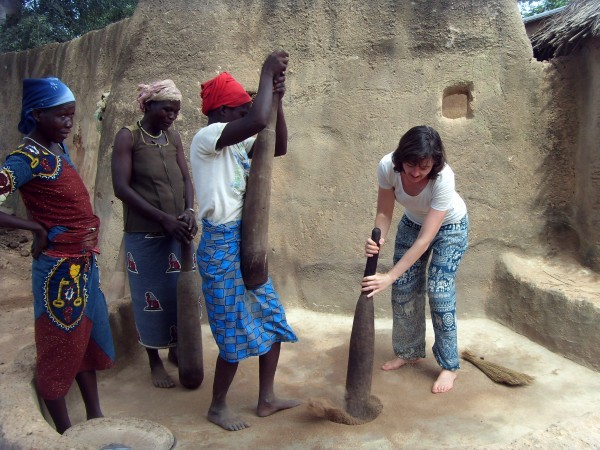
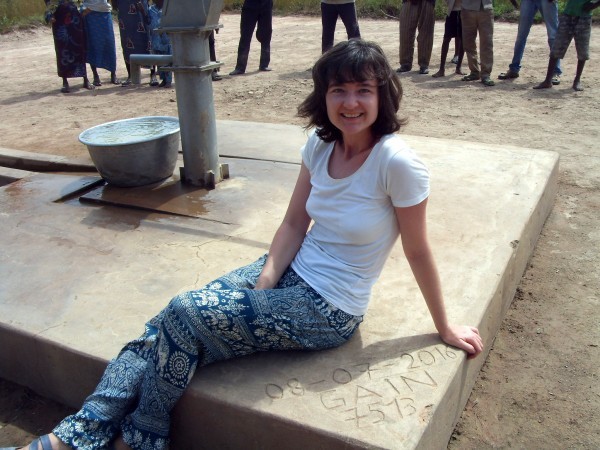
Q: Would you recommend that people go on a vision trip with GAiN?
A: Yes, I would definitely recommend going on a vision trip. It’s great to see the impact of a donation – not only from photos in an annual report but on site.
Q: Do you have any other experiences or comments that you would like to share?
A: I believe in Water for Life Initiative’s wholistic concept that includes the following:
- Providing wells- because clean water in the villages saves lives.
- Partnering with the JESUS Film Church Planting Strategy to share the message of God’s love and connect people to local churches and further resources for spiritual growth.
- Hygiene and Sanitation Training teaches people who have no access to education about proper hygiene habits and how to avoid diseases.
- Ensure maintenance of the wells by:
- Having a well committee in each village
- Training and equipment of regional technical staff for repairs
- Monitoring – staff regularly return to the villages to manage the wells and the work of the committee (this guarantees the functioning of the well for long-term sustainability).
All of this is done by locals!
GO ON A LIFE TEAM TRIP AND EXPERIENCE THE IMPACT OF A DONATION.
I AM INTERESTED IN A LIFE TEAM TRIP
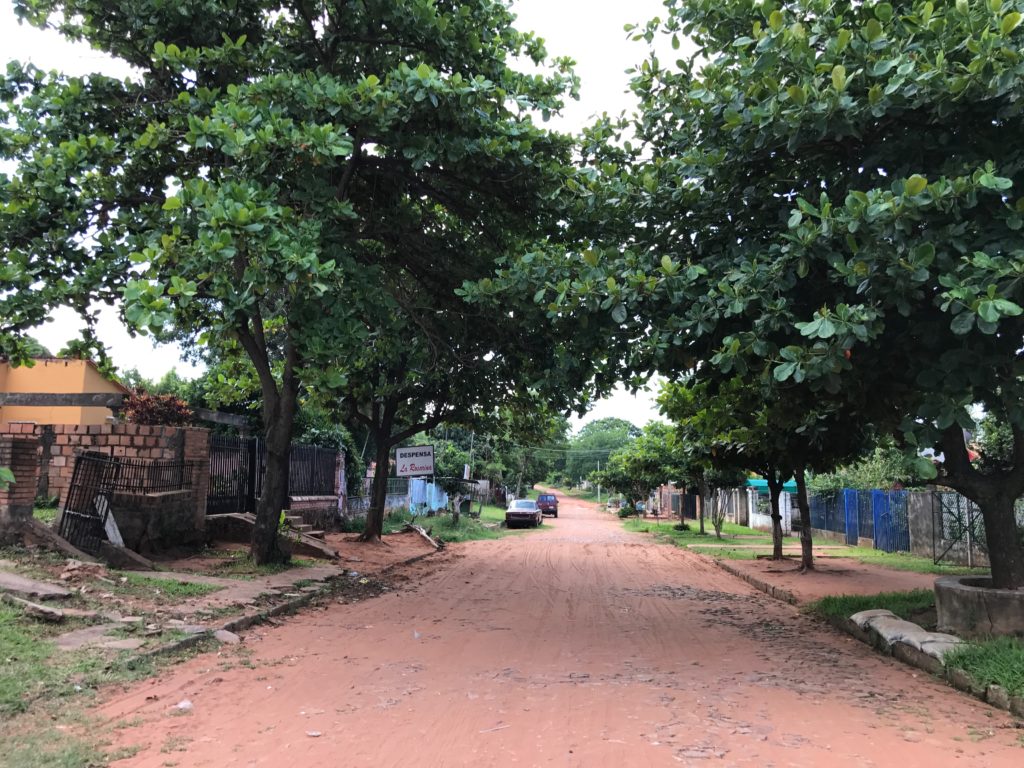
On their first day in Asuncion, Paraguay, during a nice stroll along the Paraguay River, the LIFE Team was exposed to the stark reality of inequality. High-rises towering over the floodplain slums revealed the intense economic disparity of the city. When heavy rain pours and the river rises, squatter homes – made of cardboard, metal and tarp – that line the shores are subject to flooding, forcing people to leave their makeshift homes until the flood subsides.
A far way from home, the LIFE Team spent two weeks in 2017, serving communities in Paraguay, alongside our local partners. The team was made up of families from the Richmond, B.C. area, ranging in age and consisting of adults, teens and children. They got to teach workshops, visit an orphanage, prepare food and distribute goods, as well as spend quality time with children in the community.
In Paraguay, the pit of extreme poverty is so deep that those in the gutter feel hopeless to escape.
More than a third of the population live in poverty, especially those in rural areas.1 Because the burden of poverty usually falls on women, Diaconia (our partner in Paraguay) provides micro-loans to poor women who are trapped in debt, empowering them not only through opportunities to start a career and earn money to pay off their loans, but to also build a better future for their families.
Rufina was one of those women. She received an opportunity to create a new life. As a wife and mother of five, Rufina now had hope that she could provide for her youngest adopted daughter, Anita.
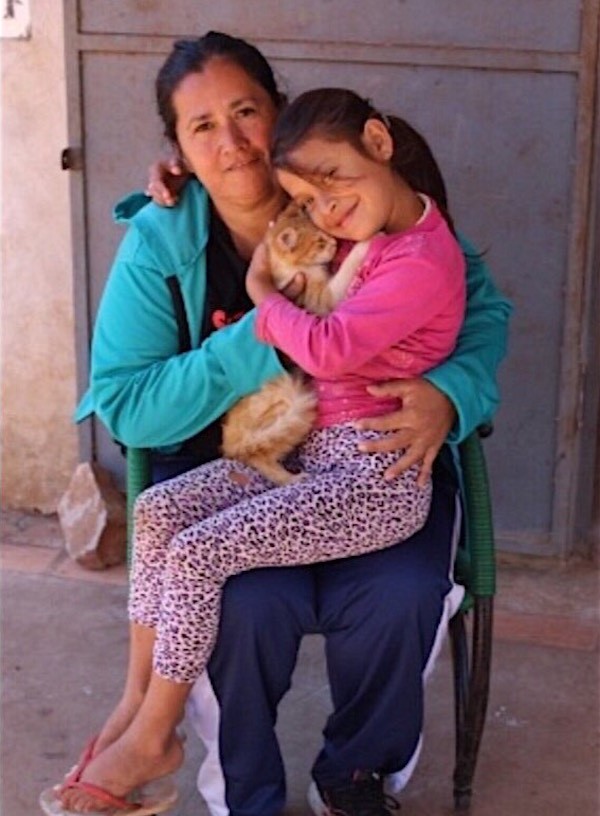
She had always fought to overcome the many obstacles in her life, but it wasn’t until she joined Diaconia, that she received an opportunity to move forward.
“Two years ago I joined Diaconia with the hopes of growing financially by investing into my clothing store,” Rufina shares. “We were struggling to put food on the table and were having a difficult time with my daughter. I was taking medication to sleep at night, which made me very exhausted throughout the day. I was struggling and my family and friends were worried about me. I started to work with our micro-finance Trust Group each week. Today, I am off sleeping pills and my business is thriving. My daughter’s life is also improving. I can only say that Diaconia has brought a change into every area of my personal and family life!”
Marta was another woman impacted through Diaconia. As a single mom to one son, Marta was struggling to make ends meet. Selling food on the streets was her only way to make a living. But this all changed when she got involved.
“A year ago I was struggling to make ends meet,” shares Marta. “I was living in a constant deep sadness due to the passing away of my father who had always been such a support. I heard of Diaconia and joined. Before I knew it, I was cooking and selling meals from home on a consistent basis and making really good money with it. Today, I don’t have to go out on the streets anymore to sell food. Through my Trust Group, I was able to hear about God’s love for me. Today, I am free from the sadness that had overtaken my life. I have been blessed above and beyond what I hoped for!”
The micro-enterprise program also provides workshops and vocational training for these women, something that the LIFE Team was able to get involved in. A highlight of their time was leading workshops where they taught the women how to make something many of them had never even tasted before – Chinese fried rice. Some team participants also got to use their skills to lead workshops and speak on business-related topics such as marketing and budgeting, helping empower the women to develop the skills to grow businesses.
On their sixth day there, the team got to visit our other partner Jesus Responde, a Paraguayan non-profit that developed a strategy to connect local churches to build Community Centres across the country. With soup mix from the Fraser Valley Gleaners, a partner of ours that is based in Abbotsford, B.C., over 400 Community Centres are able to feed approximately 25,442 impoverished children each week.
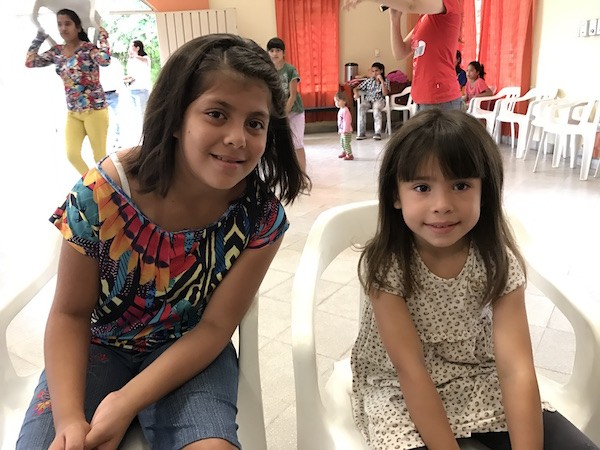
The team got to visit one of the Community Centres, where they were able to eat with the children and spend time playing games with them.
For many team participants, the most heartbreaking experience happened at the end of the trip, when they drove across the country to Ciudad Del Este (City of the East) to visit a children’s centre. Though it was called Hogar Transitorio y Abrigo “Nino Feliz”, which translates to Happy Child Transitional Home and Shelter, according to Lily Kwok, GAiN’s LIFE Teams Manager, it was anything but happy.
The centre is a government facility that provides temporary shelter for children who come from abusive homes. Although Jesus Responde has been working with a local partner to help the shelter, and the children are no longer in abusive homes, their new temporary home still needs a lot of help.
“We were told the kids there are from broken homes, have never known structure and deeply craved love and affection,” explained Kwok. “Honestly, we felt overwhelmed by the situation and were deeply saddened by the conditions of these kids. They ate so fast and wanted more! It was hard to leave.”
Feeling the heaviness of the situation, team participants did their best to bring as much joy as they could in the time they were there. This came in the form of balloons, skipping ropes and groceries to prepare a meal for the kids.
Kwok comments, “It was a challenging but impactful two weeks. The group definitely grew in their knowledge of poverty and were challenged in how they are to respond going forward.”
IF YOU WANT TO LEARN MORE ABOUT OUR UPCOMING LIFE TEAM TRIPS, CLICK HERE.
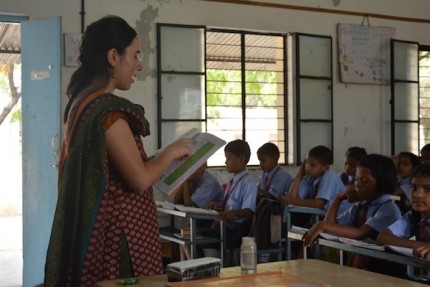
Written by Erika Pettigrew, LIFE Team participant
Money, school, friends, or family? Work, or vacations? Doubt, or fear? Maybe you think you can have the most impact close to home – that serving others short term hurts more than it helps. Maybe you’re scared or you don’t feel ready. You might feel like it’s not the right time. You might not want to go at all. Or maybe you want to go but don’t know where or how.
I’m going to tell you three reasons why you should consider joining a LIFE team this summer and how going on a project has changed my life.
Why you should join a LIFE team?
1. YOU CAN MAKE A DIFFERENCE
I don’t need to tell you that there are people around the world living in extreme poverty. Most of us are aware that hundreds of millions of people are currently suffering from abuse or lack of resources, yet we often don’t know what we can do to help. LIFE teams are a great way for you to get involved in the solution and actively work for change. I decided to participate in the India Summer Project last year because I longed to help women and children who were experiencing injustice. While I was serving at Mukti Mission, I had the opportunity to share hope with fatherless children and destitute women who had experienced terrible suffering. I am thankful that I was able to take part in making a difference, even if it was small.
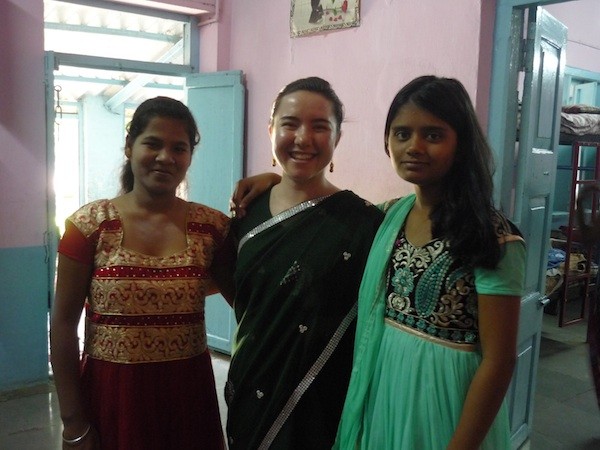
Whether it’s going to Benin to work with the water wells, running summer camps and health training in Haiti, or caring for orphans and widows in India, you have an opportunity right in front of you to help others in need.
2. IT’S WORTH IT, EVEN IF IT’S SHORT
You might be wondering whether it’s worthwhile to travel across the world to do ordinary work that many other people could do.
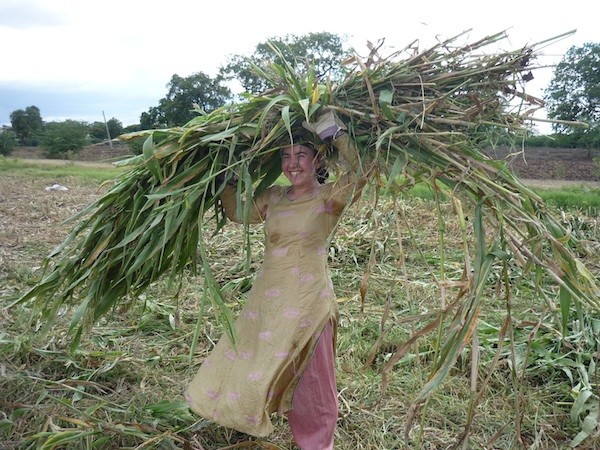
In theory, it does sound inefficient to expend a large amount of resources to accomplish little projects. It seems as though it would be better to just send money to support the local churches that are already established in these countries. But from my personal experience, I’ve realized that local churches long for us to come and visit them.
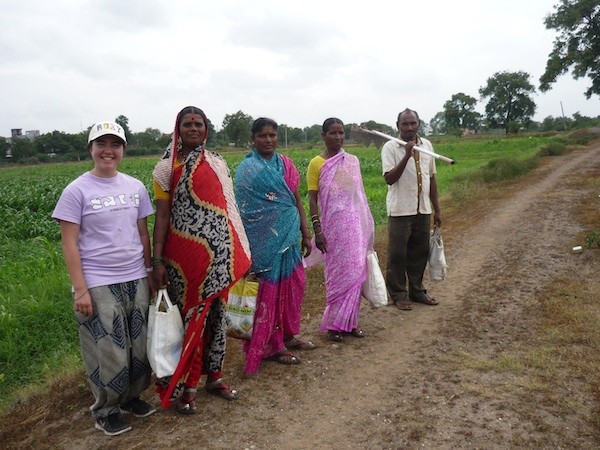
Last year, I met an African pastor who had travelled to Canada to plead for us to go to encourage the church there. When I went to India, I could see how the local workers were so thankful that our team came. During our time at the mission, we were able to serve the workers and give them a much needed break – time when they could be refreshed and poured into so that they could keep working when we left.
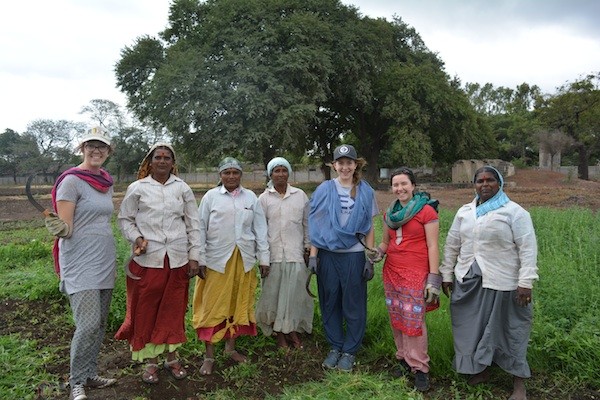
Our presence and support encourages churches in a way that no amount of resources ever could. Churches are excited for you to come. In going, we also will be encouraged by learning from church’s amazing faith, which can help us to pour into our church when we return home and serve newcomers coming to Canada.
GAiN has long term projects established where they send LIFE teams, so in joining a project you can help work towards lasting change even if you can only go personally for just a season. These short-term trips can bring joy, hope and transformation in ways we can’t think or imagine.
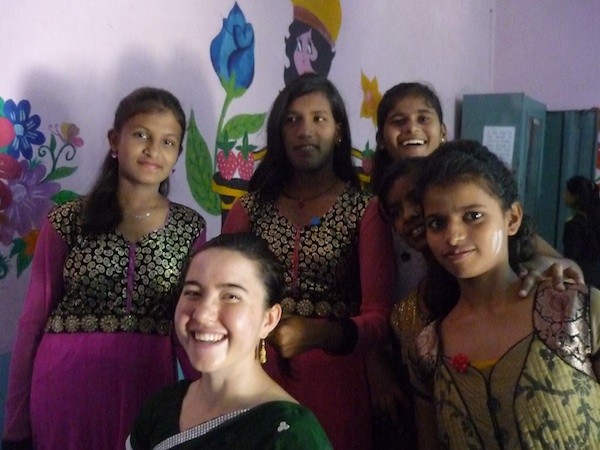
3. YOU CAN USE YOUR SKILLS TO MAKE A DIFFERENCE
There is work out there that only you, with your personality, skills, passions, and experience can do. During my time in India, I was able to teach chemistry, work on a farm, and lead singing and music for a worship service. I was amazed to see how the skills I have could be used to serve others! You, too, have unique gifts and abilities that you can use to make a difference in the lives of those who need it.
I am the person I am today because of the summer projects I have participated in. In the past three years, I have helped with humanitarian projects in rural South Africa, shared God’s message of hope with those living in need in inner-city Toronto, and cared for orphans and widows in India.
My faith has grown through these projects as I have met people with profound faith and hope. I’ve tried to use the gifts God has given me to love and serve others. It is through these experiences that I was able to step out of my comfort zone and grow stronger in my faith.
My heart has been broken by the extreme poverty that I’ve seen, but I’ve also been encouraged as I’ve seen faces light up at hearing messages of hope for the first time. I can’t imagine anything more fulfilling – and so I can’t help but go. I am incredibly excited to travel to India again this summer and continue to develop the relationships I made last summer. I know great things will be done.
I’ve listed some reasons why I think everyone should participate in a GAiN LIFE team, but I understand it’s not always possible for everyone to go. Sometimes it just isn’t the right time, but that doesn’t mean you should give up completely. I wish for you to serve and care for others, wherever you are this summer, but consider joining a LIFE team (especially consider joining me in India)!
